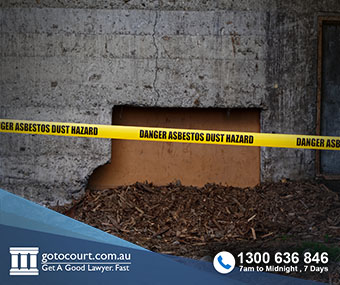Call our lawyers
now
or,
have our lawyers
call you
Contesting A Will in the NT
Updated on Jan 10, 2023 • 5 min read • 172 views • Copy Link
Contesting A Will in the NT
Only an eligible person can make a Family Provision Claim in the Northern Territory if they receive inadequate provision in a will. An “inadequate” provision might be receiving nothing from a will or receiving an amount that is insufficient for the person’s maintenance. Contesting a will can be quite complex, and there are firm deadlines that must be observed. Missing a deadline can mean that an otherwise strong case will not be heard. This page explains the process of contesting a will in the NT.
Obtaining A Copy Of The Will
One of the initial obstacles a claimant faces is not knowing the contents of a testator’s will. Therefore, the first thing a claimant should do is contact the executor (or estate administrator) and request a copy of the will. Wills are a matter of public record once they are probated, but certain people are entitled to see the document before this time. Under the Wills Act 2000, the following people have a legal right to inspect the deceased’s will:
- Any beneficiary or other person referred to in the will;
- A beneficiary of a prior will;
- The deceased’s spouse or child;
- The deceased’s parent or guardian;
- A parent or guardian of a child named in the will or who would be entitled to provision from an intestate estate;
- Any person who would be entitled to provision from an intestate estate; and
- A creditor or someone who has a claim in equity or law against the estate.
Contesting A Will In The Northern Territory
In the Northern Territory, a claimant can contest a will if:
- the deceased resided in the territory or owned real estate in the jurisdiction; and
- the claimant is an eligible person; and
- the claimant was left with inadequate provision.
Eligibility To Contest A Will In The NT
Section 7 of the Family Provision Act 1970 lists categories of people who are eligible to contest a will in the territory. The following people can file a Family Provision Claim with the court:
- A current married spouse of the deceased;
- A child of the deceased;
- A de facto partner, former spouse, or stepchild of the deceased (but only if the deceased was maintaining them immediately prior to his or her death);
- A parent of the deceased (but only if they were being maintained by the deceased or the deceased died without a living spouse, de facto partner or children); and
- A grandchild of the deceased (but only if their eligible parent has already died, or the grandchild was not receiving maintenance from one or both of their own parents at the time of the claim).
In this context, “maintenance” refers not only to existing court-ordered maintenance but also to circumstances where the court would order maintenance if the deceased was still alive. Maintenance also refers to situations where the deceased cohabitated with the claimant before their death. Additionally, a person can claim maintenance eligibility if the deceased was substantially contributing to their upkeep. For instance, a stepchild can establish eligibility if they lived with the deceased or the deceased was contributing in a significant fashion to their living expenses.
Establishing Inadequate Provision
A claimant must establish that the testator provided them with inadequate provision under the will. The concept of adequate provision is difficult to define as it varies from case to case. The court will evaluate a claim based on many factors, including:
- the claimant’s financial position;
- the claimant’s relationship with the testator;
- the value and nature of the estate assets; and
- any competing claims against the estate.
Time Limits When Contesting A Will In NT
A claimant should immediately contact the executor of the estate and inform them of their intention to file a legal claim against the estate. It is important to do this as soon as practicable to prevent the executor from beginning estate distribution.
A claimant must file a claim for greater provision from a deceased estate within 12 months of the probate grant date. An application after this deadline will only be heard with special leave from the Supreme Court. Under the Family Provision Act, the court cannot hear a late application if the executor has already completely (and lawfully) distributed the estate.
Costs Of Contesting A Will In NT
In the Northern Territory, the court has discretion to award costs in family provision claim proceedings. If a claimant receives further provision from the estate, the judge often also requires the estate to reimburse the claimant’s ordinary legal costs. On the other hand, if the claimant is unsuccessful, the judge might order that they pay the estate’s costs of defending the proceeding. A cost order against a claimant is typically only ordered when the claim is found to be vexatious, or the claimant was unwilling to negotiate fairly with the executor prior to trial.
Our Team practices extensively in this area of law and can assist a claimant in achieving the best possible outcome. If you are thinking of contesting a will in the Northern Territory, we encourage you to call 1300 636 846 or contact the team today.

Affordable Lawyers
Our Go To Court Lawyers will assist you in all areas of law. We specialise in providing legal advice urgently – at the time when you need it most. If you need a lawyer right now, today, we can help you – no matter where you are in Australia.How It Works







1. You speak directly to a lawyer
When you call the Go To Court Legal Hotline, you will be connected directly to a lawyer, every time.


2. Get your legal situation assessed
We determine the best way forward in your legal matter, free of charge. If you want to go ahead and book a face-to-face appointment, we will connect you with a specialist in your local area.


3. We arrange everything as needed
If you want to go ahead and book a fact-to-face appointment, we will connect you with a specialist in your local area no matter where you are and even at very short notice.


















